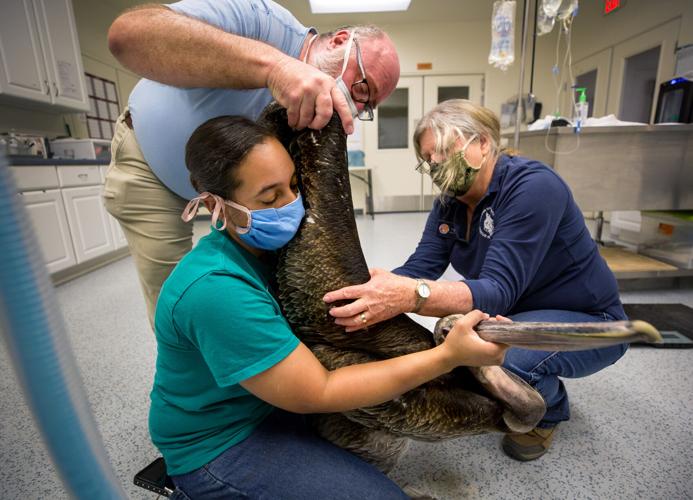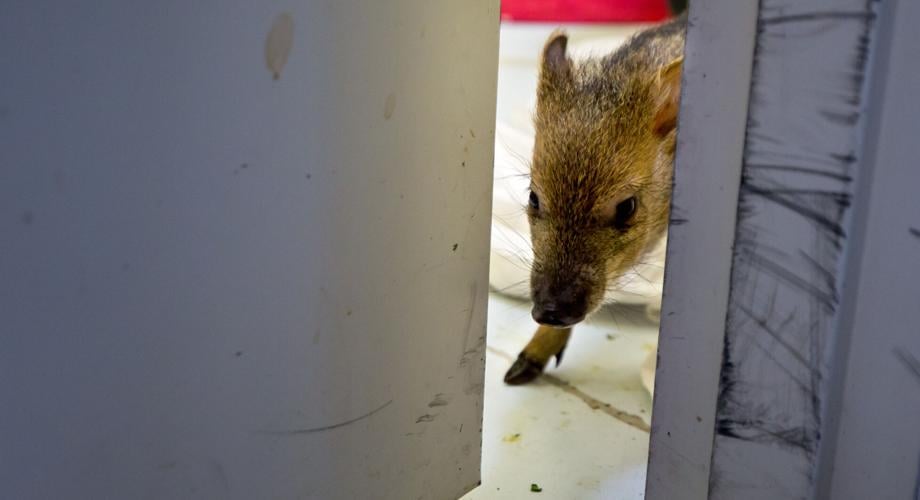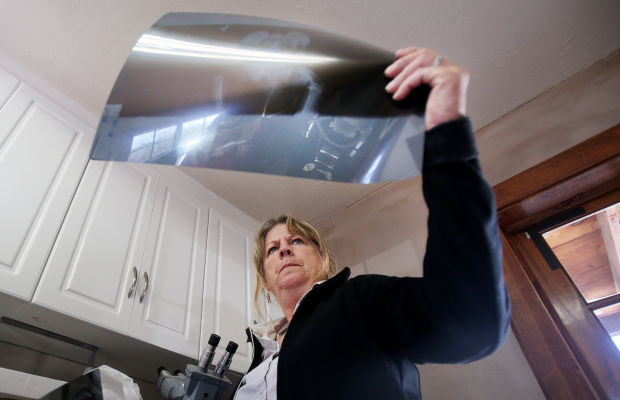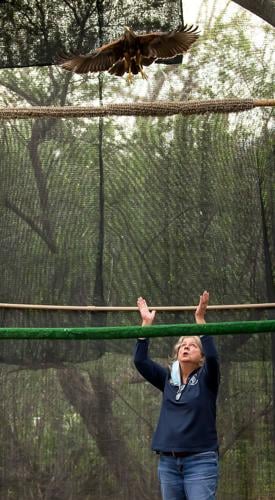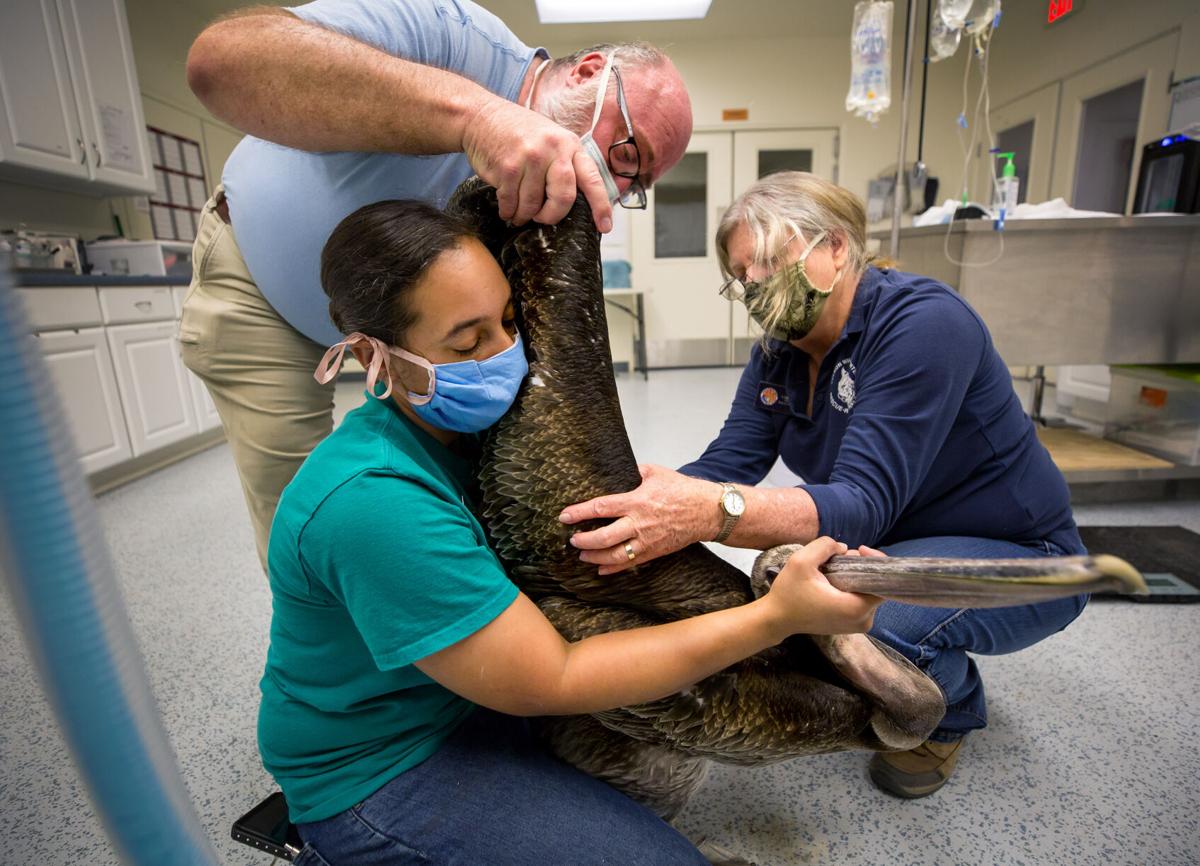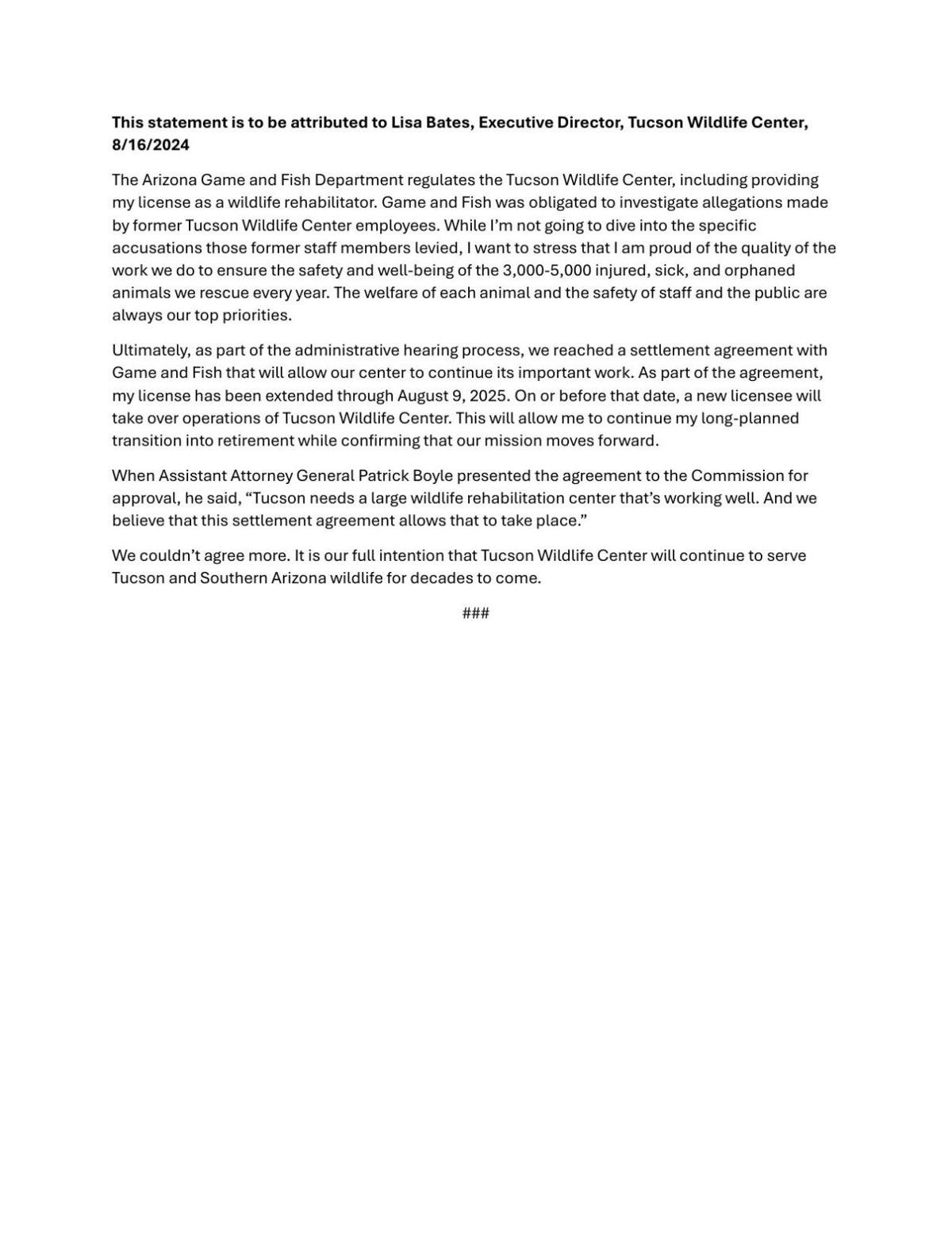The director and co-founder of Tucson’s largest wildlife rescue center has until this time next year to hand over control of the operation to someone else, under a settlement agreement with state authorities.
The Arizona Game and Fish Commission is giving Lisa Bates 12 months to find someone qualified to replace her as the license holder for the Tucson Wildlife Center, where state inspections last year identified a long list of alleged problems.
In January, Game and Fish officials refused to renew Bates’ wildlife rehabilitation license, citing more than 200 violations of state statutes and licensing rules since 2021.
The rescue facility near the east end of Speedway was allowed to stay open while Bates appealed the decision.
In a presentation to the state wildlife commission on Aug. 9, Assistant State Attorney General Patrick Boyle said the agreement with Bates was reached after several months of settlement talks that were required as part of the administrative hearing process in Arizona.
“Tucson needs a large wildlife rehabilitation center that is working well, and we believe this settlement agreement allows that to take place,” Boyle said.

A curious baby javelina peeks through a crack in the door of a holding room at the Tucson Wildlife Center on Dec. 22, 2020.
The commissioners unanimously approved the settlement without discussion.
The agreement includes a list of conditions Bates must comply with to “ensure that the Tucson Wildlife Center will be well run” during the transition to a new license holder, Boyle said.
“I think the most important of those stipulations is that (veterinarians) will be reasonably available at all times,” he told the commission. “Ms. Bates actually provided us with the names of the two veterinarians she hired for that purpose prior to the agreement even being finalized, so we appreciated that.”
According to the Game and Fish website, there are just two licensed wildlife rescues serving all of Arizona south and east of Phoenix. The Tucson Wildlife Center is the biggest by far, providing care to as many as 5,000 sick, injured or orphaned animals each year.
The nonprofit center operates on donations and grants and without any funding from the government, according to its website and available tax documents.
As part of the settlement, the Game and Fish Department agreed to dismiss its case against Bates but reserved the right to refile any or all of the 211 listed counts in the future.
The most serious allegations involved failing to consistently provide licensed veterinary care, ignoring medical directives from the veterinarians who were there, euthanizing animals that might have recovered with proper treatment, and falsely reporting the successful release of several baby birds that had actually died from neglect at the center.

Tucson Wildlife Center co-founder Lisa Bates examines an X-ray of a javelina on Jan. 15, 2014.
Despite state codes requiring rehabilitated wildlife to be released in the same general area where it is found, authorities allege that from 2021-23, 327 animals of various kinds were set free on the center’s property along Tanque Verde Wash.
Game and Fish officials also listed dozens of occasions when birds and mammals were kept at the rescue far longer than permitted, which sometimes resulted in the animals becoming so habituated to humans that they could not be safely returned to the wild.
The allegations mirror concerns raised by several of the center’s former employees and volunteers, who told the Arizona Daily Star in 2022 about staffing problems and personality conflicts that compromised the care for a number of animals under Bates’ leadership.
Bates declined an interview request for this story, but she provided a statement to the Star about the settlement and what prompted it.
She said state wildlife officials were obligated to investigate the allegations made by former employees of the center, but she declined to “dive into the specific accusations” that were made.
“I want to stress that I am proud of the quality of the work we do to ensure the safety and well-being of the 3,000-5,000 injured, sick and orphaned animals we rescue every year,” Bates wrote. “The welfare of each animal and the safety of staff and the public are always our top priorities.”
She went on to write that turning the center over to a new license holder will “allow me to continue my long-planned transition into retirement while confirming that our mission moves forward.”
Bates is a Tucson native who rescued her first wild animal when she was a little girl. She founded the Tucson Wildlife Center with her husband, Peter Lininger, in 1998, after retiring early from her first career in hydroponic agriculture.
The operation has grown significantly since then, with roughly 120 volunteers and 20 paid staff members as recently as a few years ago.
Within the past decade, Bates and company have used two of the largest donations in the nonprofit’s history to build a new administrative building and a 6,000-square-foot animal hospital in place of an existing 100-square-foot treatment room at the site.
Since 2014, the center has been accredited with the Global Federation of Animal Sanctuaries, a Phoenix-based nonprofit dedicated to improving the standard of care and providing support to humane animal sanctuaries worldwide.
In 2022, the most recent year that tax documents for the Tucson Wildlife Center are publicly available, the operation reported more than $6.6 million in total assets and more than $1.2 million in income from contributions and grants. Total expenses for that year came in at less than $885,000.
Under the settlement agreement, Bates’ wildlife rehabilitation and wildlife holding licenses will permanently expire in August 2025 or as soon as the Game and Fish Commission approves a new license holder for Tucson Wildlife Center, whichever comes first.
Bates has agreed not to reapply for those licenses again.

Bates
There is nothing in the settlement that explicitly prohibits her from continuing to be involved with the center in some capacity.
Bates did not address questions about what future role, if any, she plans to take at the rescue she helped build.
In her statement, she noted that the settlement agreement will allow her creation to “continue its important work.”
“It is our full intention that Tucson Wildlife Center will continue to serve Tucson and Southern Arizona wildlife for decades to come,” Bates wrote.
The furry youngster has been at Tucson Wildlife Center for about two weeks recovering from pneumonia and a low body temperature, but is reportedly on the road to recovery.
According to TWC, javelina enjoy eating potatoes, apples, zucchinis, squash, watermelons, and pumpkins, among other foods. Leftover pumpkins from this Halloween season that are free of mold and chemicals can be donated to TWC for the javelina.
TWC is asking those wanting to donate their pumpkins to call ahead at (520)-290-9453 before bringing them to the center at 13275 E. Speedway Blvd.


